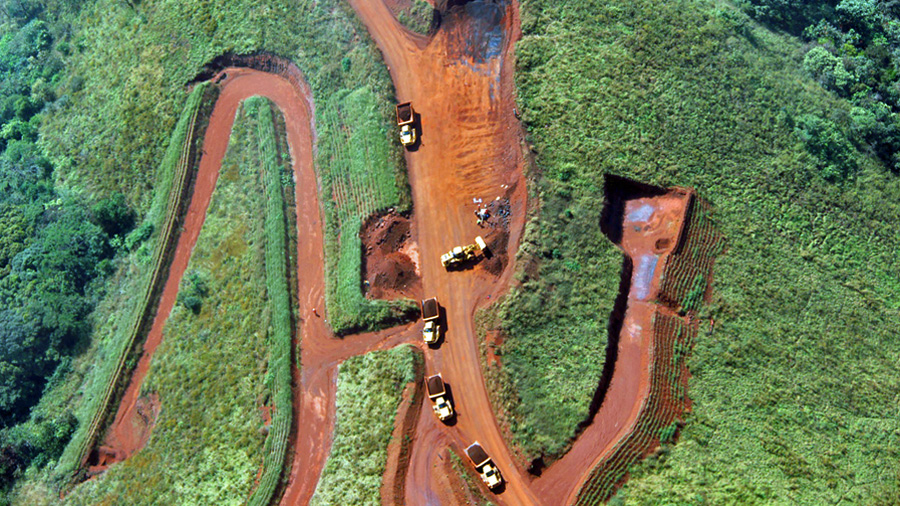SMB-Winning aims to bring Simandou into production by 2025

China-backed consortium SMB-Winning aims to bring blocks 1 and 2 of Guinea’s massive Simandou iron ore deposit into production by 2025, Société Minière de Boké Chairman Fadi Wazni said on Friday, a tight timetable for a huge mine and infrastructure project.
The consortium – which includes Singapore’s Winning Shipping, Guinean mining logistics firm United Mining Supply (UMS), Chinese aluminium producer Shandong Weiqiao, and Guinea’s government – won a $14 billion government tender in November 2019 to develop the blocks.
“2025 is what we are aiming to,” Wazni said at the Financial Times Mining Summit. “I have to say that, if you look at our record with bauxite… we are fairly confident we will meet this target.”
Société Minière de Boké (SMB), a company founded in 2014 which is also controlled by the consortium, has rapidly risen to become Guinea’s biggest bauxite exporter.
The industry is watching Rio and SMB-Winning closely to see how they will develop the deposit
The SMB-Winning consortium is developing Simandou through a new company, Winning Consortium Simandou.
Simandou, in Guinea’s remote south-eastern corner, is the largest known deposit of its kind, holding more than 2 billion tonnes of high-grade ore.
Blocks 3 and 4 of Simandou are owned 45.05% by Rio Tinto , with Chinalco holding 39.95% and Guinea’s government holding 15%.
Guinea’s government requires the developers of Simandou to build a 650 km (400 mile) railway, dubbed the Transguinéen, and a deepwater port to transport the ore from the remote southeastern corner of Guinea to the coast for export.
“We already have in hand the technical capability to undertake the construction of the Transguinéen railway,” Wazni said, adding that SMB-Winning has had contact with Rio about potentially transporting their ore on the railway.
“The more we have tonnes, the happier we are,” he said, adding that cargo is needed to make the infrastructure viable.
Guinea’s mines minister Abdoulaye Magassouba said the infrastructure is a bigger issue for government than the mine itself, and that SMB-Winning has a good track record in the country.
The industry is watching Rio and SMB-Winning closely to see how they will develop the deposit, a process which has been delayed for decades by protracted legal disputes and high costs.
Mining investor Robert Friedland, whose High Power Exploration company is developing the Nimba iron ore mine in Guinea, said the country has “the beluga caviar” of iron ore and bauxite.
(By Helen Reid and Tanisha Heiberg; Editing by Jason Neely and Kirsten Donovan)
{{ commodity.name }}
{{ post.title }}
{{ post.date }}




Comments